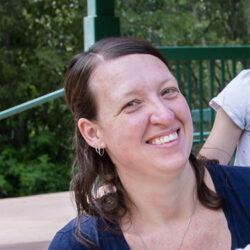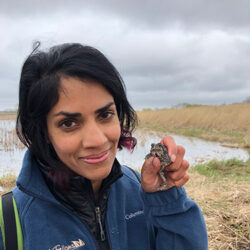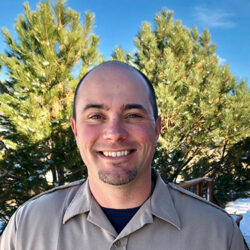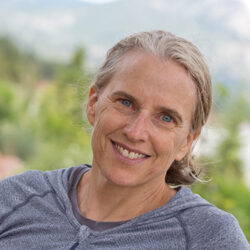Join our panelists as we:
- Present research related to oil and gas development and wildlife.
- Explain how the COGCC rules work to facilitate public involvement in decision making.
- Explain how CPW will participate in COGCC decision making and what the 1200 series means for protecting wildlife.
Panelists

Jessica Sushinsky
President
Wild Space Conservation
Jessica’s work over the past 13 years has focused on improving wildlife conservation outcomes by applying conservation science and spatial analysis to planning and management issues surrounding the intersection of human-wildlife. She is interested in the integration of social and ecological data in a spatial context in order to improve wildlife conservation outcomes. Jessica has an M.S. in Conservation Biology from the University of Queensland, Australia and has published her work in peer-reviewed journals and presented it at conferences.

Priya Nanjappa
Commissioner
Colorado Oil and Gas Conservation Commission
Priya Nanjappa of Lakewood is the commission’s expert on environmental protection, wildlife protection or reclamation. She will serve a two-year term. Nanjappa has a Master’s of Science in biology and has co-authored numerous scientific publications, and has worked for over 20 years in wildlife conservation and environmental policy. That includes as director of operations for Conservation Science Partners and 10 years with the Association of Fish and Wildlife Agencies. She is politically unaffiliated.

Taylor Elm
NW Regional Energy Liaison
Colorado Parks and Wildlife
Taylor is the Regional Energy Liaison for Colorado Parks and Wildlife’s (CPW) Northwest Region. He coordinates CPW’s wildlife consultations and land use recommendations for new oil and gas developments, renewable energy projects, federal land planning efforts, and transportation projects among other things. He attended Colorado State University where he received a bachelor’s degree in wildlife biology and became a certified wildlife biologist. He has worked several seasonal positions with CPW and the U.S. Forest Service conducting raptor nest surveys, tracking mule deer, and performing fisheries surveys. He began working for CPW full time in 2013 as a Land Use Specialist and transferred to the Energy Liaison position in 2018. In his free time, Taylor enjoys archery hunting, fly-fishing, and taking in the sights of Western Colorado with his wife and two kids.
Moderator

Joro Walker
General Counsel
Western Resource Advocates
As the General Counsel to Western Resource Advocates, Joro works with program directors to identify appropriate opportunities throughout the region to leverage state and federal law to gain victories on land conservation, and air and water quality. She specializes in the Clean Water Act and Clean Air Act, for example by challenging proposed discharges that threaten Great Salt Lake ecosystems, contesting air quality permits issued to coal plants and oil and gas refineries and working to ensure that Utah quickly adopts and implements a plan that will bring the Wasatch Front into attainment with national health based air quality standards. Joro also uses Clean Water Act and Clean Air Act laws and regulations to curb unlawful oil shale and tar sands development and to protect the most sensitive habitats in National Forests from energy development and motorized vehicle abuse.
Additional Resources:
Habitat loss and fragmentation are two main causes of the continuing decline in biodiversity in our region and pose serious threats to our wildlife populations. With natural areas in the West disappearing at a rate of one football field every 1.65 minutes between 2001 and 2017, we need to ensure urban sprawl, transportation development, and energy development don’t further threaten the iconic species that inhabit the unparalleled landscapes and natural areas of the West. Add to that, climate change is fundamentally altering landscapes and habitats, introducing new pressures and threats to wildlife.
But there is good news: Following landmark legislation in 2019 that gave the Colorado Oil and Gas Conservation Commission (COGCC) the mission to protect public health and environment from the impacts of oil and gas, Commissioners voted unanimously in 2020 to adopt new rules, including rules that will better conserve wildlife.

